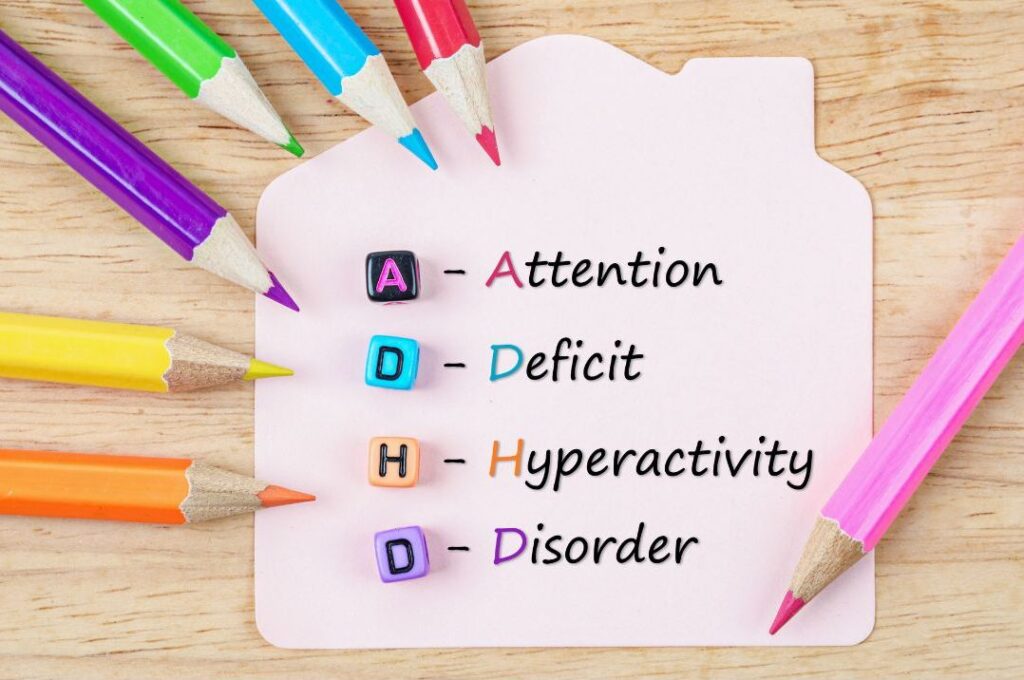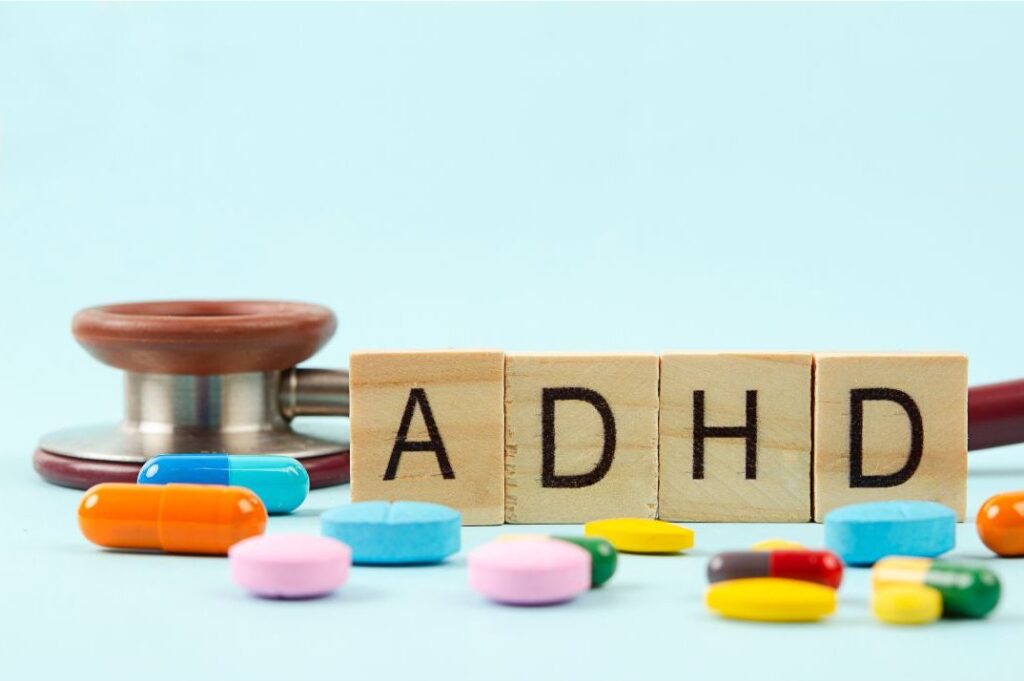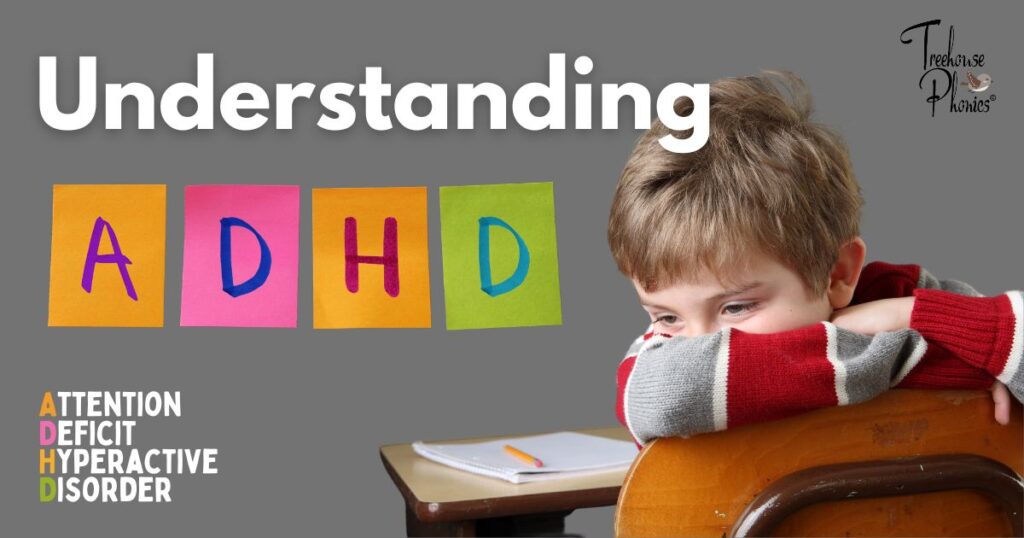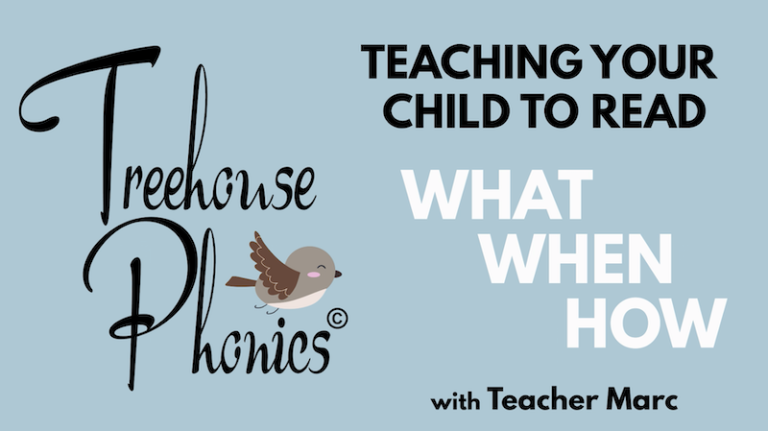ADHD (Attention Deficit Hyperactivity Disorder) is a neurodevelopmental disorder that can affect both children and adults. A person with ADHD may suffer from a lack of attention, extreme hyperactivity, or make impulsive choices that might spur conflict or have negative effects on their physical and mental well-being. The goal of this discussion is not to diagnose or suggest specific medical treatment. We are simply going to familiarize ourselves with this disorder and hopefully gain a greater understanding of what your child might be going through. I assume you are reading this article because you either suspect your child has ADHD or they have been officially diagnosed with the disorder and are currently working with the challenges and obstacles that arise on a daily basis.
We’ve already mentioned the three primary symptoms and characteristics exhibited by someone with ADHD. It’s time to dig a little deeper.
Symptoms of ADHD

The first is inattention. There are distractions most people simply can’t ignore; a crying newborn, a frantic knock at the door, the sudden crack of thunder, and so on. However, the lack of attention, in this case, is a more persistent inability to focus on tasks, forgetting even simple details, and being distracted by the tiniest changes in one’s surroundings. Distractions that would normally sail past a child without ADHD.
The second is hyperactivity. We are not talking about a child’s exuberant behavior after dumping a bowl of sugar down their throat. If that were the case I would have been the ADHD poster child down to this day. Do you remember the expression “so hyper he’s climbing up the drapes”? Six-year-old me after a bowl of Jello? I’m swinging like a chimpanzee. What we’re looking at again, is persistent, excessive movement and restlessness that goes beyond a chemical reaction to sweets. It’s difficult sitting still, and a constant fidgeting that is often uncomfortable to watch.
Understanding our third symptom impulsivity will enlighten us to the reasons for some of the strange, erratic, and at times, inappropriate behavior that would generally send children to the principal’s office. We think we raised them right, yet we are shocked to see our children acting without thinking, interrupting others, and being unwilling to wait their turn.
The issues in formal school and homeschooling are going to be very similar. Your child might be unable to focus on their work. They may have trouble completing assignments or following directions, and may even exhibit disruptive behavior that makes teaching any lesson next to impossible. It is even more heartbreaking when a child goes undiagnosed and a parent blames themselves, thinking they are somehow to blame. Let’s put blame and guilt into a little box, lock it, and through the key into the ocean. No one needs to feel down on themselves today.
If your child does in fact have ADHD, the one question you might be asking is “Could I have prevented it?” Some disorders can be prevented and this is generally the case when we can pinpoint a cause. For instance, a whole host of disorders may surface from the effects of fetal alcohol syndrome. This could have been avoided if mamma refrained from drinking alcohol during pregnancy. ADHD is not that cut and dry.
Causes

The exact causes of ADHD are unknown, but research suggests that genetics and environmental factors play a role in the development of the disorder. Studies have shown that ADHD is more common in families where one or more members have the disorder. Environmental factors such as exposure to toxins, premature birth, and low birth weight may also increase the risk of developing ADHD. Research has also suggested that differences in brain structure and function may contribute to the development of ADHD. Imaging studies have shown that individuals with ADHD have differences in the frontal lobes of their brains, which are responsible for regulating attention, behavior, and emotions. Do you see now, why the blame game is pointless?
Treatments

I want to make this very clear. I am not a medical professional and the following information is by no means a suggestion or referral on my part. I am simply outlining what the common options are.
The good news is that there are choices. These might include medication, behavioral therapy, or a change in lifestyle. The pharmaceutical approach is often seen as the first line of treatment and this will include stimulant medications such as Ritalin and Adderall. These are commonly prescribed to help improve attention and reduce hyperactivity and impulsive behavior. Non-stimulant medications such as Strattera may also be prescribed in hopes of achieving similar results.
Pills aside, one may resort to behavioral therapy that teaches children and adults with ADHD strategies for managing their symptoms. Behavioral therapy may include teaching organizational skills, time management, and coping strategies for managing impulsive behavior.
And finally, a change in lifestyle could help with managing symptoms of ADHD. Regular exercise has been shown to improve attention and reduce hyperactivity. A healthy diet rich in omega-3 fatty acids, fruits, and vegetables may also help improve symptoms of ADHD.
With any of the strategies and treatments mentioned above, our greatest ally is in detecting signs of ADHD as early as possible. Here is some good news. It is possible to detect ADHD in children as early as three years old. That is a two-year head start before they are “school ready” and an official diagnosis gives you the peace of mind that no one is to blame. Your child is not a disinterested, misbehaved hooligan. You have not failed them. The very fact that you’re reading this article shows that you want to provide the best education possible despite the challenges and obstacles brought on by ADHD. Between early detection, effective treatment strategies, and a little patience, we can assist our children in reaching their full potential. In a future article, I will present effective teaching techniques and methods that will help children with ADHD get the most out of their reading lessons. After all, we are about reading here at Treehouse Phonics.



